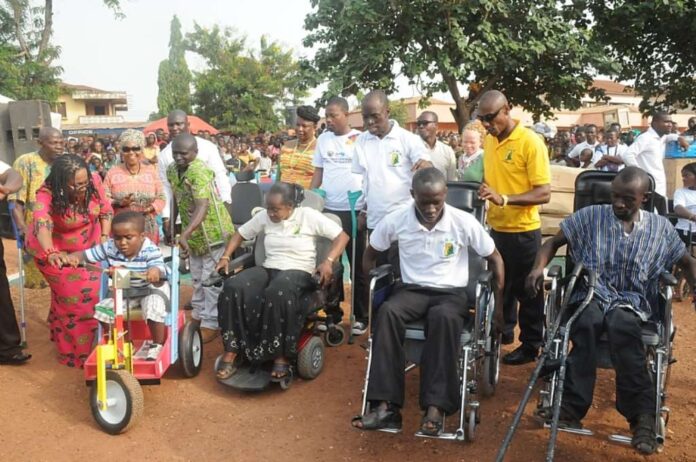As the world strives for inclusive democracy, one community that often faces significant barriers are Persons with Disabilities (PwDs).
In this special report, I explore the challenges PwDs encounter during elections and the need to advocate for inclusive democracy.
In many low-income countries, People with Disabilities are excluded from political and social engagements, unable to cast their vote or stand for election. Lack of accessibility, stigma, and inadequate policies hinder participation.
The President of Ghana Blind Union Dr. Peter Obeng Asamoa said persons with disability are relegated to the background such that participation in elections, which is their civic right, is denied them.

He said there are certain conditions that Persons living with Disability go through, specially those who are visually impaired.
“There is a device like a card that we use our thumb to feel and identify which candidate we are voting for, but one must be trained by the Electoral Commission, till date we have not received any information as the Federation keeps waiting to hear from the EC,” he said.
He added that the EC in the 2020 elections trained Persons with Disability in the various regional capitals, which did not transcend to the disability community in the districts. This deprived a lot more of the persons with disability from voting.
Dr. Obeng-Asamoa said the Federation has complained to EC on several occasions for measures to be instituted to help members take part in the electioneering process, but the help is not forthcoming.
This notwithstanding, it is left with a few days to the 2024 December 7th elections and the EC is silent about their plight and we are worried Persons with Disability would not participate in the elections,” he stated.
Some individuals in the Ghana Federation of Persons with Disability shared their challenges during elections.
Peter Anoma Kodie, Programs Manager at the Ghana Disability Federation Organization indicated a number of challenges that are a major setback for voting.
He said there are other times that ballot boxes are placed over staircases where physically challenged persons on a wheelchair find it difficult to climb to vote and it is discouraging the community from participating in major elections.
Helena Ama Narh Pernuku, a person living with albinism, indicated that their vision is low and the ballot papers are not bold and clear enough, thus it is difficult to choose their candidates.

“Provision must be put in place to allow albinos vote without waiting too long in the polling station,” she appealed.













